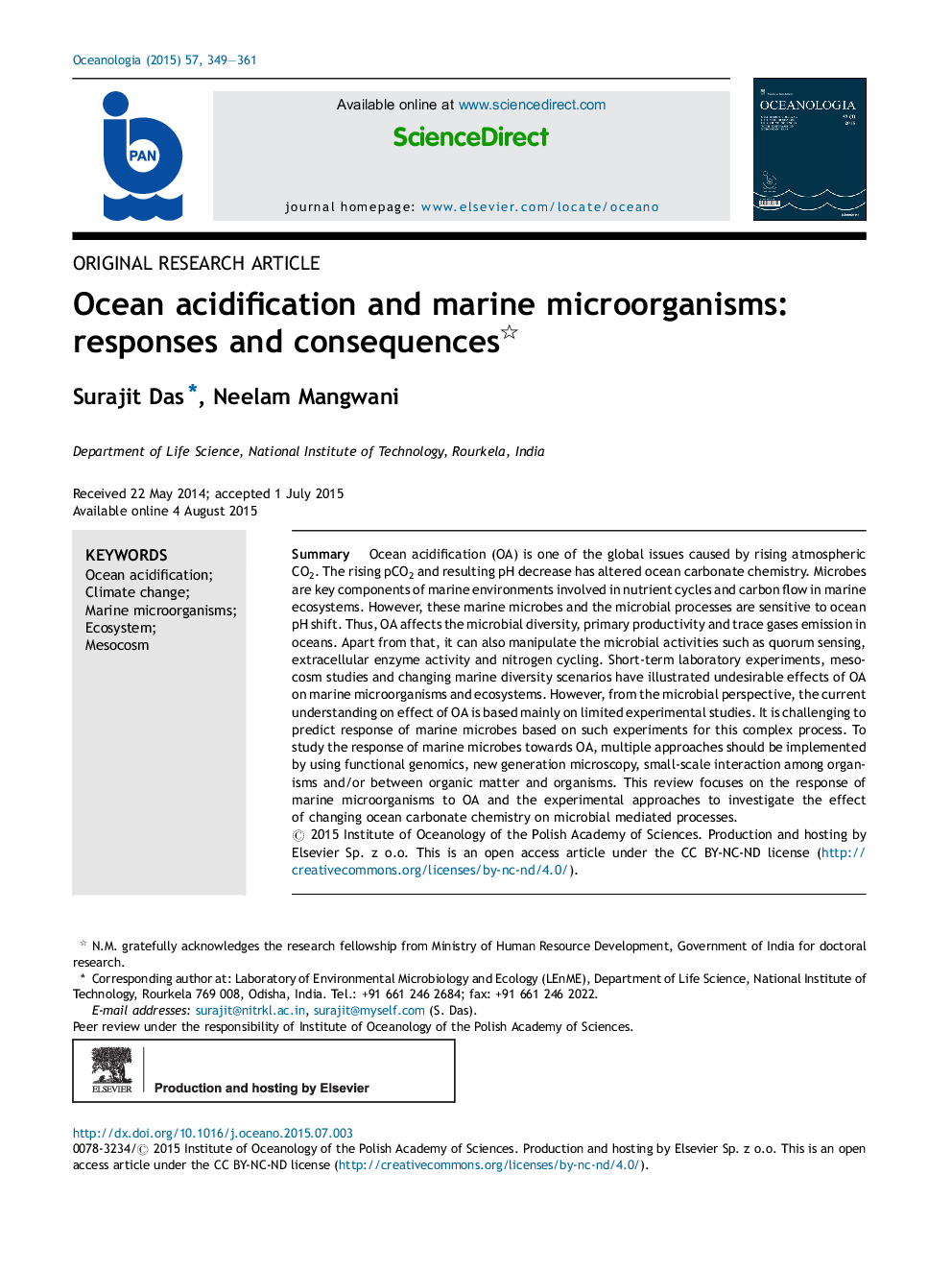| Article ID | Journal | Published Year | Pages | File Type |
|---|---|---|---|---|
| 2069716 | Oceanologia | 2015 | 13 Pages |
SummaryOcean acidification (OA) is one of the global issues caused by rising atmospheric CO2. The rising pCO2 and resulting pH decrease has altered ocean carbonate chemistry. Microbes are key components of marine environments involved in nutrient cycles and carbon flow in marine ecosystems. However, these marine microbes and the microbial processes are sensitive to ocean pH shift. Thus, OA affects the microbial diversity, primary productivity and trace gases emission in oceans. Apart from that, it can also manipulate the microbial activities such as quorum sensing, extracellular enzyme activity and nitrogen cycling. Short-term laboratory experiments, mesocosm studies and changing marine diversity scenarios have illustrated undesirable effects of OA on marine microorganisms and ecosystems. However, from the microbial perspective, the current understanding on effect of OA is based mainly on limited experimental studies. It is challenging to predict response of marine microbes based on such experiments for this complex process. To study the response of marine microbes towards OA, multiple approaches should be implemented by using functional genomics, new generation microscopy, small-scale interaction among organisms and/or between organic matter and organisms. This review focuses on the response of marine microorganisms to OA and the experimental approaches to investigate the effect of changing ocean carbonate chemistry on microbial mediated processes.
